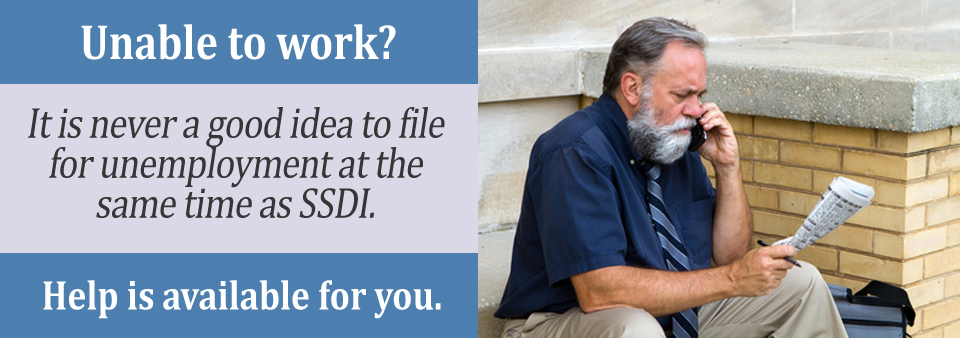Becoming disabled is more than just a physical problem. Unable to work due to declining health, individuals with disabilities often face financial hardships as well. While a disabled person might immediately file for Social Security Disability Insurance (SSDI) benefits, there is a minimum five-month wait period. Due to the vast number of disability applicants, approvals can take up to three years in some cases. Unfortunately, the financial responsibilities of life do not stop during difficult times.
Many individuals are forced to look for other means of financial assistance during this time. Some people turn to unemployment benefits as a means of support. While this may seem like a good idea, applying for unemployment can hurt a claimant’s ability to earn disability benefits. As the two programs serve very different purposes, applicants who apply for both may appear to be contradicting themselves.
How Are the Requirements for Unemployment and Disability Different?
When an individual applies for unemployment benefits, the person is affirming that they have a desire to work and are actively seeking work, but that they are unable to find a suitable job. The typical unemployment candidate is capable of work but has often been laid off from their job for one reason or another. Because unemployment programs are state-based, the exact rules that govern them vary from state-to-state.
On the other hand, when a person applies for the federally-run SSDI program, they are stating that they have a health impairment that is so severe that it results in an inability to work at all. Further, they are attesting that their health condition will prohibit them from working for at least one year, but likely much longer.

Understanding the difference between the two programs should make the contradiction quite obvious. When applying for SSDI benefits, you are stating that you are incapable of working at gainful employment because of a severe health condition. When applying for unemployment benefits, you are affirming that you are ready, able, and willing to work, but that there are no opportunities available to you.
While the Social Security Administration (SSA) does not explicitly prohibit individuals who are receiving unemployment benefits from earning an SSDI award, an Administrative Law Judge (ALJ) will most certainly take into account the fact that the claimant is stating that they are actively seeking employment, and yet are also too ill to work.
The issue of “double-dipping,” as many people call it, has prompted lawmakers to take the matter to Congress. Multiple bills have been introduced throughout the years that have sought to bar individuals from receiving both unemployment and SSDI at the same time. Thus far, none of the proposed bills have been made into law.
Are there Exceptions to the Rule?
As with most things, there are certain exceptions to the rule. For example, an individual might have lost their job and be receiving unemployment benefits, and then become disabled. These individuals might continue to collect unemployment while applying for disability benefits. In other unique circumstances, an individual over the age of fifty might have a disability that prevents them from keeping their previous job, and yet may still be capable of performing other work for which they have not been trained.
Still, these circumstances are rare. In fact, a 2012 report from the Government Accountability Office showed that fewer than one percent of SSDI beneficiaries also receive unemployment insurance benefits at the same time.
What Should I Do If I Want to Apply for Both Programs?
First and foremost, the essential rule in applying for either of these programs is to be honest. Under no circumstances should a claimant try to hide that they are actively pursuing financial assistance from both programs.
The SSDI application process is complex, and only becomes more confusing when adding in a second benefit program. Seeking the assistance of an experienced Social Security Disability attorney is essential in these situations. If you have any doubt about how unemployment benefits impact your SSDI claim, you should contact a Disability lawyer or advocate immediately.